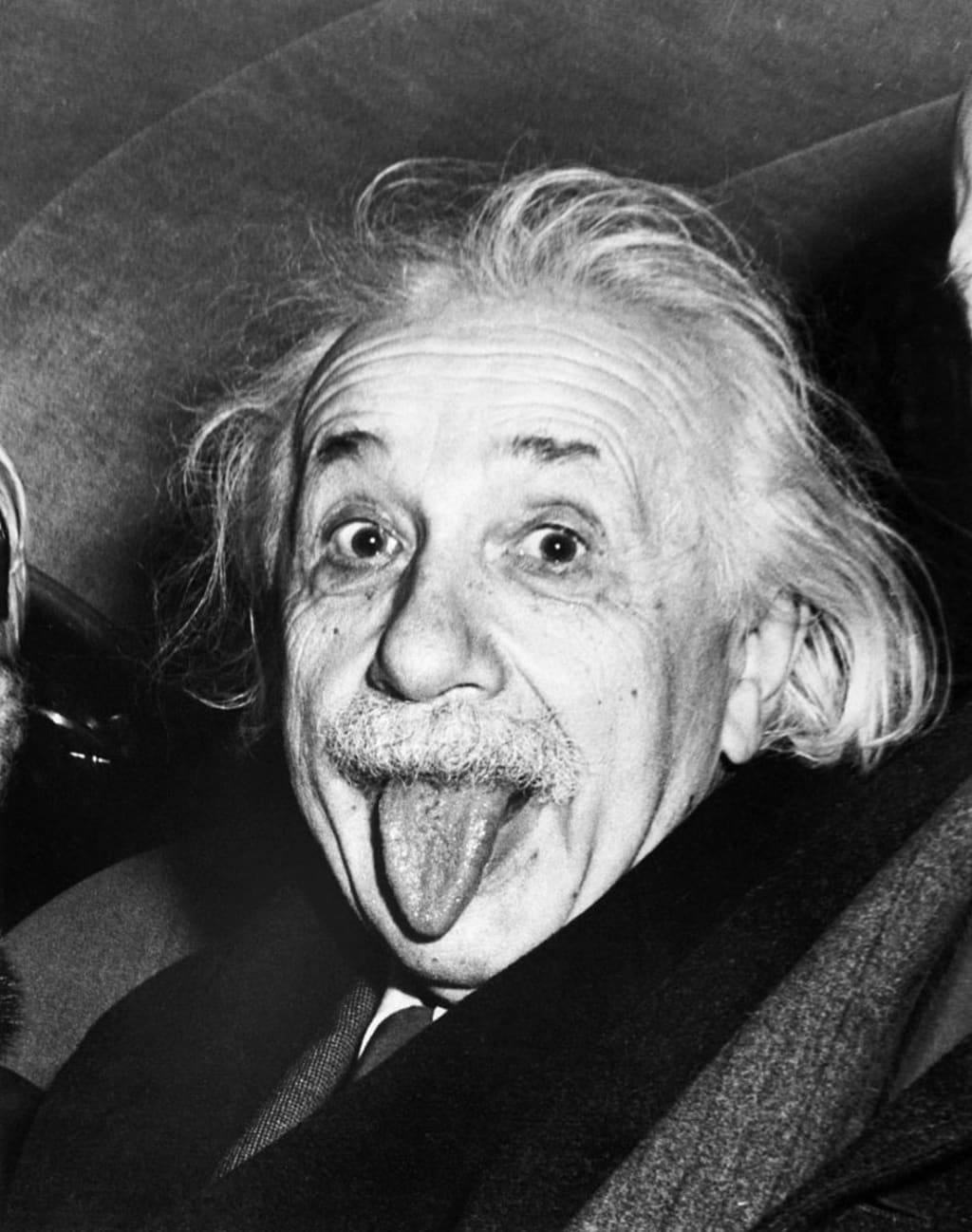Albert Einstein: The Genius of Modern Physics
The Intellectual Abilities, Revolutionary Theories, and Predictions Ahead of Their Time

Albert Einstein, the German-born physicist and philosopher of science, is widely regarded as one of the greatest scientific minds in history. His groundbreaking work in theoretical physics, particularly the development of the theory of relativity, revolutionized the field and transformed our understanding of the universe. Einstein's incredible intellectual abilities and contributions to science continue to inspire and influence scientists and thinkers to this day.
Born in Ulm, Germany, on March 14, 1879, Einstein showed signs of intellectual promise at a young age. He was a quiet and introspective child who enjoyed reading and mathematics. Einstein's family moved to Italy when he was a young boy, and he attended school there before moving to Switzerland to continue his education. In 1896, Einstein entered the Swiss Federal Polytechnic School in Zurich, where he studied physics and mathematics.
Einstein's intelligence was evident from his academic achievements. He graduated from the Polytechnic School with a diploma in mathematics and physics in 1900, and he went on to earn his doctorate from the University of Zurich in 1905. During this time, Einstein published a series of groundbreaking papers that laid the foundation for modern physics.
Einstein's most famous work, the theory of relativity, was published in 1905. This revolutionary theory challenged the traditional Newtonian view of the universe, which held that space and time were absolute and unchanging. Instead, Einstein proposed that space and time were relative and interconnected, and that the laws of physics were the same for all observers moving at a constant speed relative to one another.
Einstein's theory of relativity had profound implications for our understanding of the universe. It helped explain phenomena like the bending of starlight around massive objects and the behavior of subatomic particles. Einstein's work also laid the foundation for the development of atomic energy and the creation of nuclear weapons.
Einstein's intellectual abilities extended far beyond his work in physics. He was also a talented musician and an accomplished writer and philosopher. In his later years, Einstein became increasingly interested in the relationship between science and religion, and he wrote extensively on the subject.
Einstein's incredible intellect is often measured by his IQ, or intelligence quotient. However, it is difficult to estimate Einstein's IQ with any degree of accuracy, as the test did not exist during his lifetime. Moreover, IQ tests are not always an accurate measure of intelligence, as they often only measure a narrow range of cognitive abilities.
Instead, Einstein's intellectual abilities can be measured by his contributions to science and his ability to solve complex problems. Einstein had a remarkable ability to think creatively and intuitively, and he was able to see connections and patterns that others could not. He also had a deep understanding of mathematics, which allowed him to develop complex and elegant solutions to problems.
Einstein's predictions in the world of physics were often ahead of their time. One of his most famous predictions was the existence of gravitational waves, which are ripples in the fabric of spacetime caused by the movement of massive objects. Einstein first proposed the existence of gravitational waves in 1916 as part of his theory of general relativity, but it was not until 2015 that scientists were able to detect them directly.
Another of Einstein's predictions was the phenomenon of Bose-Einstein condensation, which occurs when a group of atoms are cooled to near absolute zero. At this temperature, the atoms lose their individual identity and become a single entity known as a Bose-Einstein condensate. Einstein first proposed this idea in 1924, but it was not until 1995 that scientists were able to create a Bose-Einstein condensate in the lab.
Einstein also made significant contributions to our understanding of the behavior of light. He proposed the idea of the photoelectric effect, which explains how electrons are ejected from the surface of a material when it is exposed to light. This work earned Einstein the Nobel Prize in Physics in 1921. He also proposed the theory of stimulated emission, which laid the foundation for the development of lasers.
Einstein's work in physics had a profound impact on our understanding of the universe, but it also had practical applications. His theories laid the foundation for the development of nuclear energy and the creation of nuclear weapons. They also contributed to the development of technologies like GPS and satellite communications.
Despite his enormous contributions to science, Einstein was not always celebrated in his lifetime. As a Jew living in Germany during the rise of Nazism, he faced persecution and was eventually forced to flee to the United States. He also faced criticism from some of his peers in the scientific community, who were skeptical of his ideas and found his work difficult to understand.
Despite these challenges, Einstein remained committed to his work and continued to make significant contributions to science throughout his life. He died on April 18, 1955, at the age of 76.
Einstein's legacy continues to inspire and influence scientists and thinkers to this day. His work in theoretical physics transformed our understanding of the universe and revolutionized the field of science. His incredible intellect and ability to think creatively and intuitively continue to be a source of inspiration for those working in science and other fields.
In conclusion, Albert Einstein was an incredible scientist and thinker whose contributions to the field of physics transformed our understanding of the universe. His groundbreaking work in theoretical physics, particularly the development of the theory of relativity, revolutionized the field and laid the foundation for modern physics. Einstein's incredible intellectual abilities and contributions to science continue to inspire and influence scientists and thinkers to this day.
About the Creator
Abli
"People write because no one listens"
Enjoyed the story? Support the Creator.
Subscribe for free to receive all their stories in your feed. You could also pledge your support or give them a one-off tip, letting them know you appreciate their work.






Comments
There are no comments for this story
Be the first to respond and start the conversation.